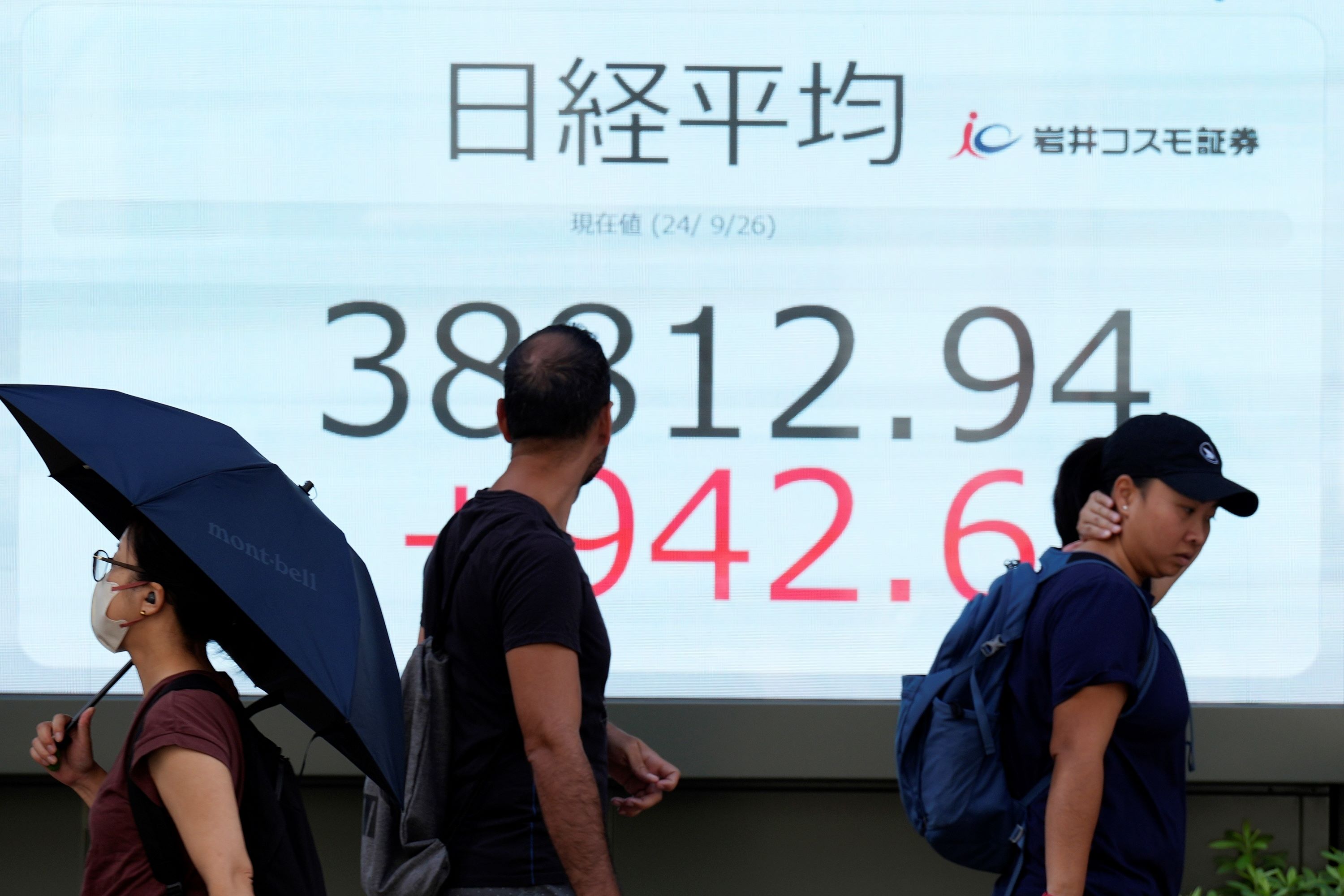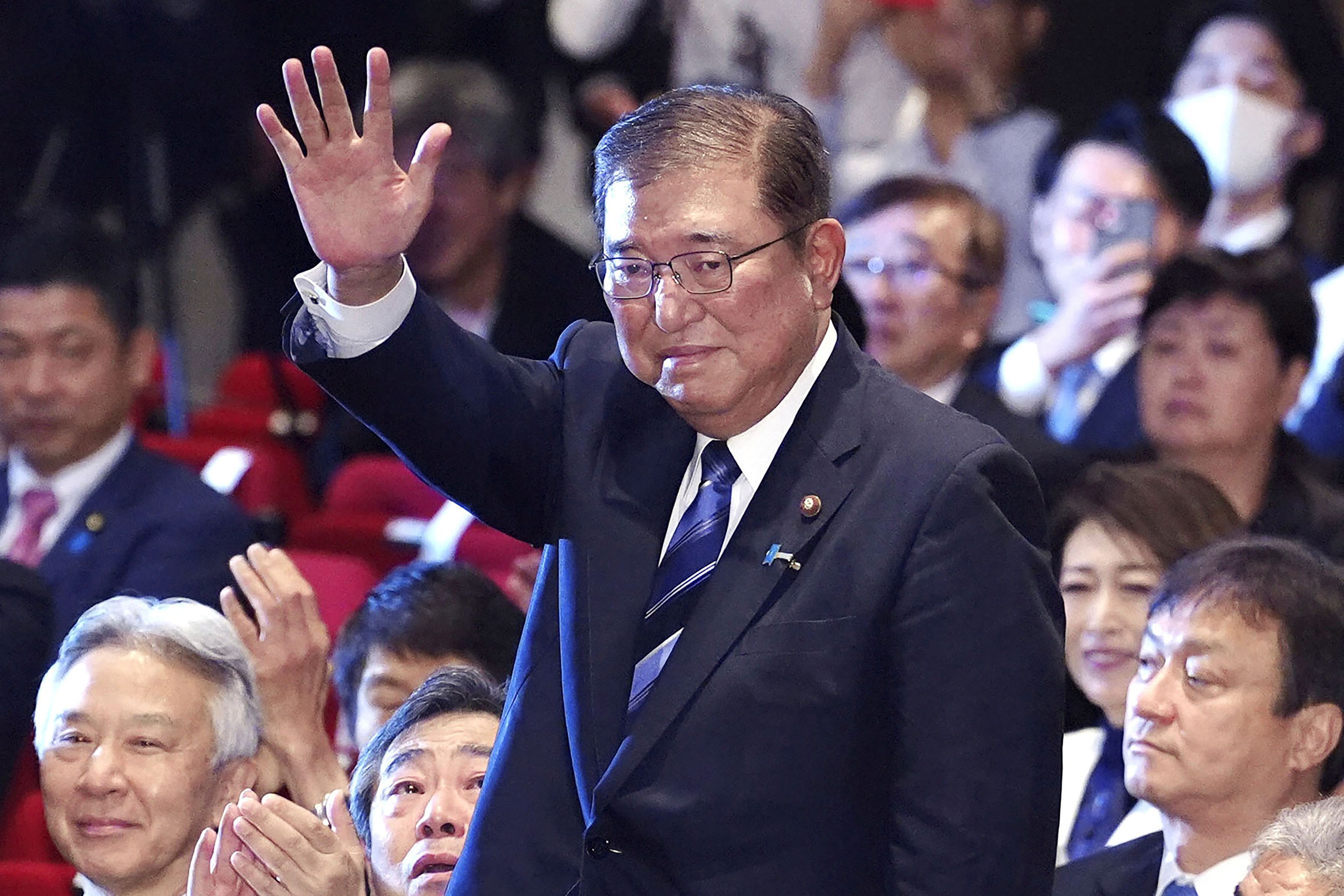
TOKYO - Japan's benchmark Nikkei stock index, the 225-issue Nikkei Stock Average, plunged more than 4 percent on Monday after former defense minister Shigeru Ishiba was elected head of the ruling Liberal Democratic Party last Friday.
The sharp decline saw the index dive more than 4.6 percent at one point as Ishiba has shown a positive stance towards increasing taxes on financial income and corporate taxes, raising concerns about his economic policies in the stock market and leading to a wave of sell-offs.
The strengthening of the yen against the dollar in the foreign exchange market also prompted broad-based selling, particularly in export-related stocks.
Ishiba's victory at the election came after Friday's market close, which saw the Nikkei index jumping 2.32 percent during the day as the market betted on Economic Security Minister Sanae Takaichi to win, expecting her to adopt pro-growth economic policies if chosen.
READ MORE: Japan's ruling coalition partner Komeito endorses new leader
Ishiba on Sunday said the country's monetary policy must remain accommodative as a trend, signaling the need to keep borrowing costs low to underpin a fragile economic recovery.
It was not immediately clear whether the incoming prime minister, who had been a vocal critic of the Bank of Japan's past aggressive monetary easing, was taking a more dovish line with his remarks.

"It's something the Bank of Japan, which is mandated to achieve price stability, will decide while working closely with the government," Ishiba told public broadcaster NHK, when asked about further interest rate increases by the central bank.
READ MORE: Veteran Japan lawmaker Shigeru Ishiba to be PM after 'final battle'
"From the government's standpoint, monetary policy must remain accommodative as a trend given current economic conditions," he said.
On fiscal policy, Ishiba said he will aim to compile a package of measures at an early date to cushion the economic blow from rising living costs, with a focus on helping low-income households.
The BOJ ended negative interest rates in March and raised short-term borrowing costs to 0.25 percent in July in a landmark shift away from a decade-long, radical stimulus program.
ALSO READ: Japan seeks to calm market's nerves after stock price fluctuations
BOJ Governor Kazuo Ueda has signaled a readiness to raise rates further if Japan makes progress towards durably achieving the bank's inflation 2 percent target, as the board projects it will.
Ishiba told Reuters in August that the BOJ was on the "right policy track" by ending negative rates and endorsed further normalization of monetary policy, saying it could boost industrial competitiveness. But in an interview this month, he said Japan must prioritize making a full exit from deflation and warned of weak signs in consumption.


